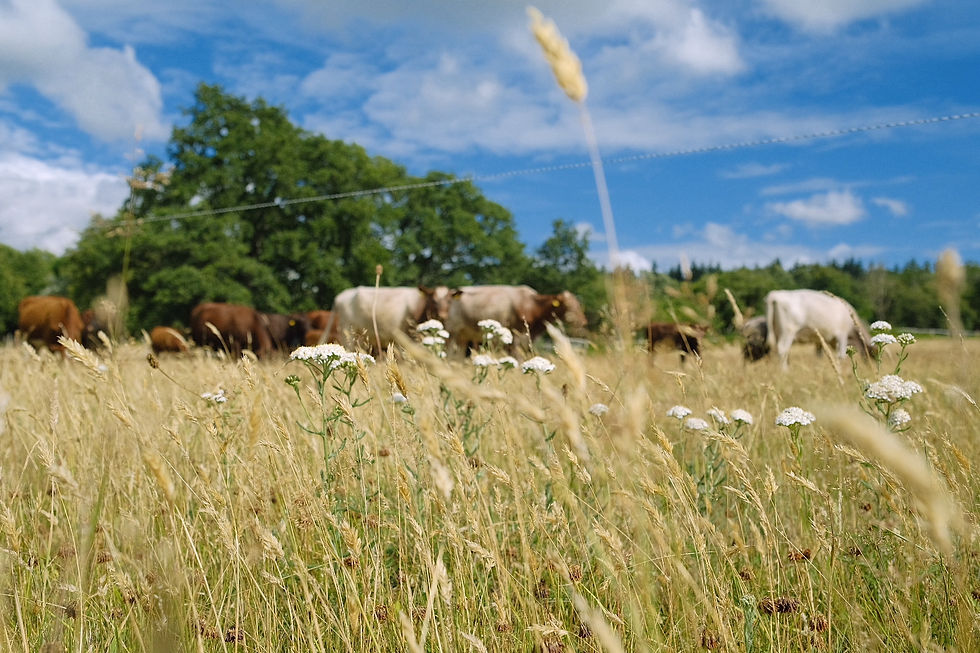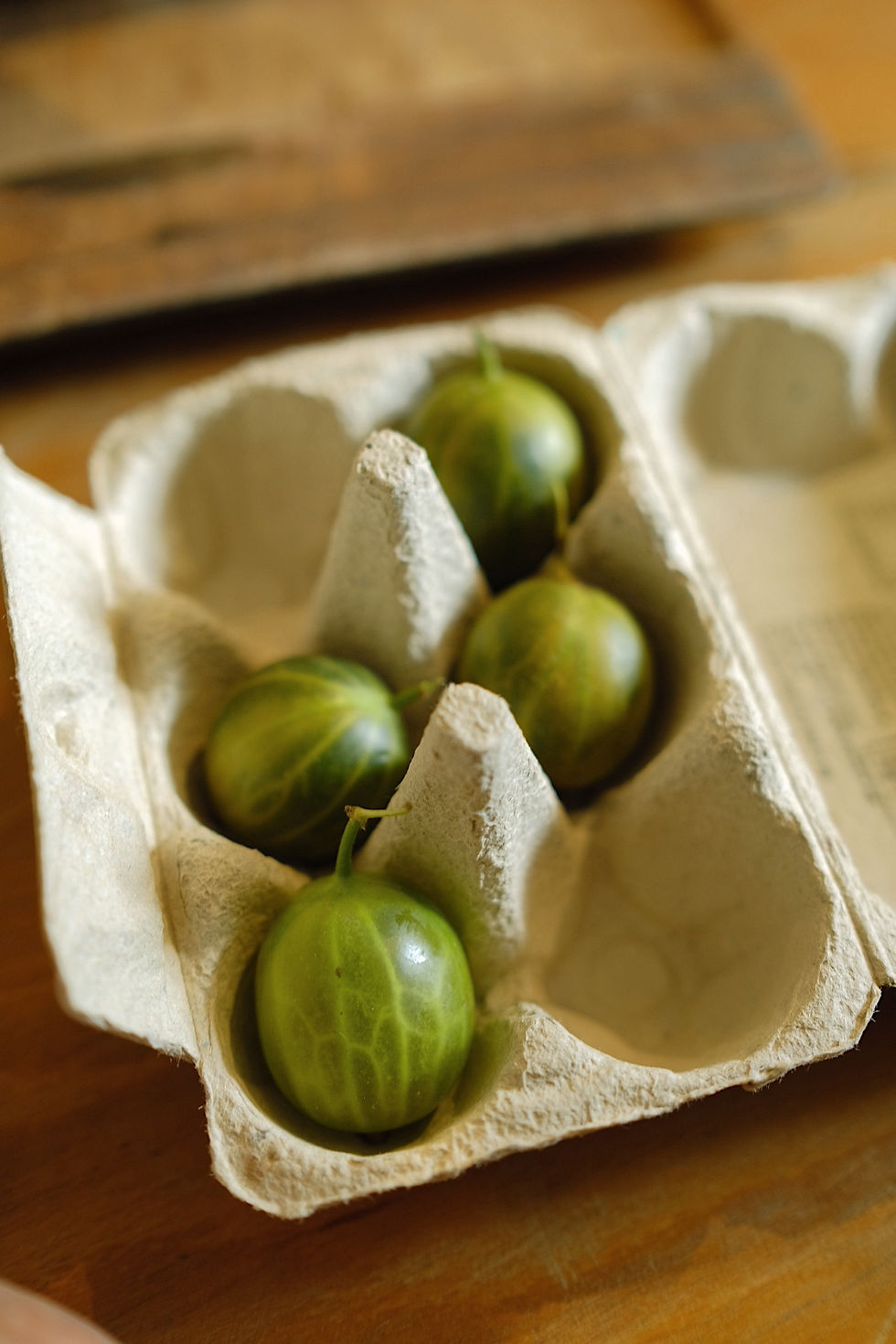Meet Slow Grown Farm, West Sussex
- Angus D. Birditt
- Jul 30, 2025
- 3 min read
Slow Grown Farm is a cow-calf dairy and regenerative farm on the edge of the South Downs National Park in West Sussex. Run by first entrant farmers, Brett and Katie, Slow Grown Farm rear a herd of native breed Red Poll and Northern Dairy Shorthorn cows. The duo make a small range of organic raw milk cheese and pasture fed charcuterie. Enjoy the following piece highlighting their work.

Slow Grown Farm is an farming enterprise which you just want to shout about all day long. Located within the South Downs National Park in West Sussex, surrounded by bucolic woodlands, banking fields, and on this particular summer's day, a baking hot sun, it is a farm that champions 'cow-calf' and regenerative practices; the former meaning that the farmers keep the calves on the mothers for a longer, more natural length of time (weeks to months, rather than seconds or minutes in more industrial systems), and the latter, a term that looks to regenerate the natural cycles on the farm, focusing on soil health.
But what does all of this really mean? In other words, Slow Grown Farm is a small-scale farm working to do two things, one, to improve the health of their natural environment, and two, produce flavoursome, nutrient-rich produce for the local community.
"The farm produces a small range of raw organic milk cheese and pasture fed charcuterie. Both products, from the off, I can tell you, are outstanding."
What nutrient-rich produce do they sell?
The farm produces a small range of raw organic milk cheese and pasture fed charcuterie. Both products, from the off, I can tell you, are outstanding. And because the products are organic and raw milk, Brett and Katie work to the highest levels of food and farming standards, so splendid stuff.
Brett and Katie focus on farming native breeds. Their cattle are Red Poll sourced from Norfolk and Northern Dairy Shorthorn sourced from the brilliant Hattan family up in the Yorkshire Dales. The reason for choosing these two breeds is that they are good mothers, they can adapt to a cow-calf system, they can be outside for the entire year, and they can be fed on pasture. Two super breeds that can work to regenerate the land.
Why support Slow Grown Farm?
It's clear to see the hard work that Brett and Katie put into both the farm and food production; to farm their animals, manage the land, produce cheese, produce charcuterie, mature cheese, mature charcuterie, run farm tours, run a small shop, all alongside raising their adorable young son, Otis. Katie previously ran her own prop and window display company and Brett worked in finance and latterly cheesemaking in the US. Now, they are farmers, farmhouse cheesemakers, charcuterie makers, and in addition for Katie, a graphic designer. The three now live on the farm metres away from their grazing animals. And it's not just cattle they farm at Slow Grown Farm. They also have a small drove of British Saddleback pigs which are reared in the nearby woodlands, grazing on a natural forage of undergrowth and pasture. The pigs are also managed in such a way as to break up the ever-increasing cover of bracken on the farm that does little in the way for a biodiverse woodland floor.
"For us, it's all about producing something we are proud to share to the world."
Why focus on slow-grown farming?
Katie says, "Everything we do; managing the land, the animal's welfare, the time and effort making and maturing produce, the look and feel of our company, the long nights, the early mornings, it's our way of life here. For us, it's all about producing something we are proud to share to the world. "
Brett adds, "It is all about making something unique. As Katie referred to, it is taking a raw material like our milk or meat, managing all of it's different and ever-changing variables, to produce a final product that we are proud of selling like our range of cheeses, meat cuts or different types of charcuterie."
What Katie and Brett are doing at Slow Grown Farm is mightily impressive, and the flavour of their products evoke their knowledge and skill and dedication to their farming and craft. It's clear to see and hear from the two that it's hard work to do what they are doing. But for them, it's all worth it, knowing that they are regenerating the health of the land, adhering to the highest standards of animal welfare, and all the while producing nutritious food for their local community. It makes me want to move in down the road!
Hats off to them, I say. We need more Bretts and Katies dotted around these isles.
Article and photography by Angus D. Birditt
.png)




.jpg)


.jpg)









































If you enjoy Pokémon-style games, PokePath TD offers a strategic tower defense experience built around creatures and tactics.
Explore Peppa Pig Games online at cartoongames.io! Join Peppa and her friends for fun, learning, and adventure in these interactive games for all ages.